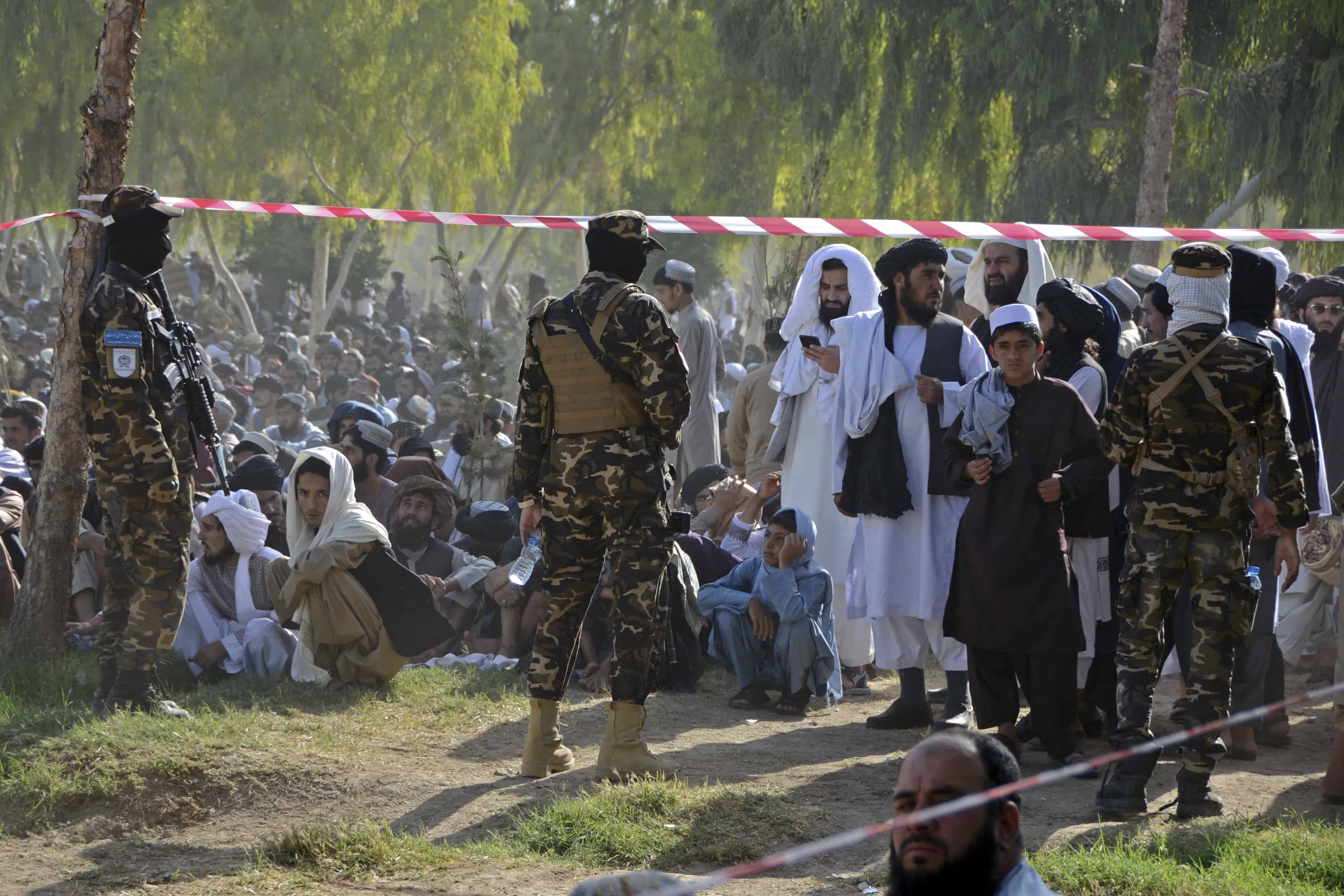Afghanistan’s supreme leader appeared publicly for only the second time in six years on Sunday, telling worshipers celebrating Eid al-Fitr the Taliban had achieved freedom and security since seizing power last year.
Speaking just two days after a bomb ripped through a mosque in Kabul, an atmosphere of heightened security surrounded the man introduced as Hibatullah Akhundzada, the chief of the Taliban.
“Congratulations on victory, freedom and success,” he told thousands of worshipers at the Eidgah mosque in the southern city of Kandahar, the hardline Islamist group’s de facto power centre.
“Congratulations on this security and for the Islamic system.”
While the number of bombings across the country has dropped since Kabul fell to the Taliban last August, attacks soared over the final two weeks of the fasting month of Ramadan, which ended Saturday for Afghans.
Dozens of civilians have been killed in the primarily sectarian attacks — some claimed by the Islamic State group — targeting members of the Shiite and Sufi Muslim communities. Friday’s bombing in the capital killed at least 10.
Akhundzada delivered his brief address from one of the front rows of worshipers in Kandahar without turning to face the crowd, according to social media posts.
Taliban officials did not allow journalists to approach him, an AFP correspondent reported.
“I’m so happy that I can’t even describe it,” said Kandahar resident Bismillah, who attended the Eid prayers at the Eidgah mosque.
“I had a dream to pray alongside my supreme leader, to hear his voice or to see him.”
Gul Ahmad, another resident of Kandahar who prayed at the mosque, said Afghans would continue to worship despite the recent attacks.
“Our people love their religion… even if blasts happen every day, our people will still visit such places and worship,” he said.
Two helicopters hovered over the mosque for the whole of the two-hour event.
– A reclusive figure –
It was Akhundzada’s second known public appearance since taking control of the Taliban in 2016.
In October, he visited the Darul Uloom Hakimiah mosque in Kandahar, according to an audio recording circulated by Taliban social media accounts.
Akhundzada’s low profile has fed speculation about his role in the new Taliban government, formed after the group took control of Kabul on August 15 — and even rumors of his death.
His public profile has largely been limited to the release of messages during Islamic holidays, and Akhundzada is believed to spend most of his time in Kandahar.
On Friday, in a message released ahead of Eid al-Fitr, he made no mention of the bloodshed that had rocked Afghanistan over Ramadan, instead praising the Taliban’s building of “a strong Islamic and national army” and “strong intelligence organization”.
In Kabul, Prime Minister Mohammad Hassan Akhund held Eid prayers at the palace where he once again slammed Washington for intervening in Afghanistan’s internal affairs.
“Didn’t they (Washington) withhold the wealth of this country which was in its bank? Isn’t that intervention in this country?” Akhund said in a statement released by the authorities.
Washington seized billions of dollars of Afghanistan’s assets after it withdrew in August, deepening a humanitarian crisis in the country.
Unlike in Kandahar, many Afghans in Kabul preferred to stay indoors on Sunday rather than visit neighborhood mosques after the recent deadly attacks.
“The situation of our people is very sad, especially after what happened in the mosques,” Kabul resident Ahmad Shah Hashemi told AFP.
“Many young and old people have been martyred. The people of Afghanistan have nothing but sorrow.”
The deadliest attack during Ramadan was in the northern province of Kunduz, where a bomb ripped through a mosque as a group of Sufis performed rituals.
At least 36 people were killed and scores more were wounded. No group has so far claimed that attack.








